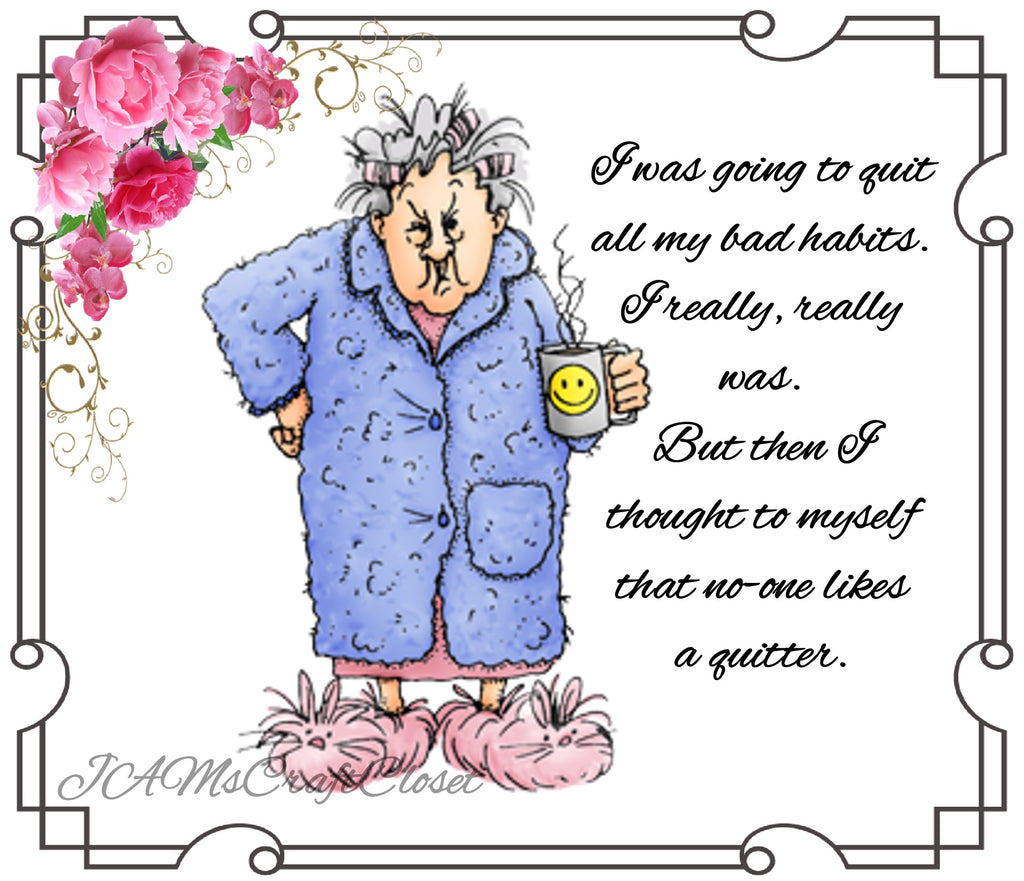
Right now, your environment makes your bad habit easier and good habits harder. Make it easier on yourself to break bad habits by avoiding the things that cause them.
#QUIT ALL BAD HABITS AT ONCE TV#
If the first thing you do when you sit on the couch is pick up the TV remote, then hide the remote in a closet in a different room. If you eat cookies when they are in the house, then throw them all away. If you smoke when you drink, then don’t go to the bar. What are you going to do when you get the urge to smoke? (Example: breathing exercises instead.) What are you going to do when Facebook is calling to you to procrastinate? (Example: write one sentence for work.) Whatever it is and whatever you're dealing with, you need to have a plan for what you will do instead of your bad habit.Ĭut out as many triggers as possible. You need to have a plan ahead of time for how you will respond when you face the stress or boredom that prompts your bad habit.

Here are some additional ideas for breaking your bad habits and thinking about the process in a new way.Ĭhoose a substitute for your bad habit. If you expect yourself to simply cut out bad habits without replacing them, then you'll have certain needs that will be unmet and it's going to be hard to stick to a routine of “just don't do it” for very long. And for that reason, it's better to replace your bad habits with a healthier behavior that addresses that same need. In other words, bad habits address certain needs in your life. Instead, you should come up with a different way to deal with stress and insert that new behavior instead of having a cigarette. Instead, you need to replace a bad habit with a new habit that provides a similar benefit.įor example, if you smoke when you get stressed, then it's a bad plan to “just stop smoking” when that happens. (This is why simplistic advice like “just stop doing it” rarely works.) But, it prevents you from feeling like you're “missing out” … and so you do it again.īecause bad habits provide some type of benefit in your life, it's very difficult to simply eliminate them. At the same time looking at all of those emails destroys your productivity, divides your attention, and overwhelms you with stress.

These “benefits” or reasons extend to smaller bad habits as well.įor example, opening your email inbox as soon as you turn on your computer might make you feel connected.

For example, biting your nails, pulling your hair, tapping your foot, or clenching your jaw. And in many cases, your bad habit is a simple way to cope with stress. Sometimes it's emotional like it is when you stay in a relationship that is bad for you. Sometimes the benefit is biological like it is with smoking or drugs. In some way, these behaviors provide a benefit to you, even if they are bad for you in other ways. You don't eliminate a bad habit, you replace it.Īll of the habits that you have right now - good or bad - are in your life for a reason. Recognizing the causes of your bad habits is crucial to overcoming them. These issues can be tough to think about, but if you're serious about making changes then you have to be honest with yourself.Īre there certain beliefs or reasons that are behind the bad habits? Is there something deeper - a fear, an event, or a limiting belief - that is causing you to hold on to something that is bad for you? Of course, sometimes the stress or boredom that is on the surface is actually caused by deeper issues. You can teach yourself new and healthy ways to deal with stress and boredom, which you can then substitute in place of your bad habits. Everything from biting your nails to overspending on a shopping spree to drinking every weekend to wasting time on the internet can be a simple response to stress and boredom. Most of the time, bad habits are simply a way of dealing with stress and boredom. Most of your bad habits are caused by two things…
#QUIT ALL BAD HABITS AT ONCE HOW TO#
I certainly don't have all of the answers, but keep reading and I'll share what I've learned about how to break a bad habit. How can you delete your bad behaviors and stick to good ones instead? I've previously written about the science of how habits start, so now let's focus on the practice of making changes in the real world. So why do we still do them? And most importantly, is there anything you can do about it?

They jeopardize your health - both mentally and physically. Bad habits interrupt your life and prevent you from accomplishing your goals.


 0 kommentar(er)
0 kommentar(er)
